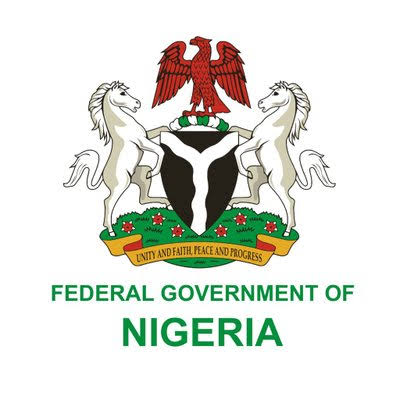In an effort to move Nigeria towards a digital economy, the government on Wednesday approved a national blockchain policy.
The policy was created, according to a tweet from the Federal Ministry of Communications and Digital Economy.
“The vision of the Policy is to create a Blockchain-powered economy that supports secure transactions, data sharing, and value exchange between people, businesses, and the government, thereby enhancing innovation, trust, growth, and prosperity for all,” the statement read.
Pay Attention To 10 Best Google Adsense Alternatives (Latest Review)
It doesn’t seem like the policy document has been released to the public yet.
The government cracked down on cryptocurrencies in 2021 after the nation emerged as one of the world’s fastest adopters of digital assets, but the tweet made no mention of them.
The Federal Executive Council, the cabinet, gave the Securities and Exchange Commission (SEC) and other regulators the order to “develop regulatory instruments for the deployment” of blockchain technology across various economic sectors. Bloomberg stated earlier in the week that the SEC was thinking about allowing tokenized coin offerings on authorised digital asset exchanges that were “not crypto” and were backed by equity, debt, or property.
Also read Fastest Motorcycle in the World record, Wiki. See the top 3
The statement added that “a multi-sectoral Steering Committee has been approved to oversee the implementation of the Policy.”
PRESS STATEMENT FEDERAL GOVERNMENT APPROVES NATIONAL BLOCKCHAIN POLICY FOR NIGERIA
The Federal Executive Council approved the National Blockchain Policy for Nigeria during its meeting today, the 3rd of May, 2023. This followed the presentation of a memo by the Honourable Minister of Communications and Digital Economy, Professor Isa Ali Ibrahim (Pantami).
The process of developing the Policy involved robust stakeholder engagements across the public and private sectors. According to PricewaterhouseCoopers (PwC), Blockchain Technologies could boost the global economy with US$1.76 trillion by 2030. The National Blockchain Policy for Nigeria is line with the National Digital Economy Policy and Strategy (NDEPS), which was unveiled and launched by President Muhammadu Buhari on the 28th of November, 2019.
The Federal Ministry of Communications and Digital Economy developed the National Blockchain Policy for Nigeria on behalf of the Federal Government of Nigeria, in line with the 7th Pillar of the NDEPS, which focuses on Digital Society and Emerging Technologies. The vision of the Policy is to create a Blockchain-powered economy that supports secure transactions, data sharing, and value exchange between people, businesses, and Government, thereby enhancing innovation, trust, growth, and prosperity for all. The implementation of the National Bloackchain Policy will have a positive effect on both the public and private sectors of the country.
Blockchain Technology has the potential to revolutionise many industries, from finance and healthcare to transportation and supply chain management. Blockchain Technology makes transactions more transparent, trustworthy, and efficient and it can result in considerable cost savings and better user experiences. Furthermore, Blockchain Technology can boost innovation, improve public services, create job opportunities, and drive economic growth.
These benefits have inspired governments around the world to explore ways to leverage this important technology. With the approval of the National Blockchain Policy, Nigeria joins the United Kingdom, Switzerland, Estonia, Singapore, United Arab Emirates, Denmark and other leading technology countries in adopting Blockchain Technology at the national level. The activities of the Policy shall be coordinated by the National Information Technology Development Agency (NITDA), under the supervision of the Federal Ministry of Communications and Digital Economy.
A multi-sectoral Steering Committee has also been approved to oversee the implementation of the Policy. The Federal Executive Council has further directed relevant regulatory bodies to develop regulatory instruments for the deployment of Blockchain Technology across various sectors of the economy.
These regulatory agencies include NITDA, the Central Bank of Nigeria (CBN), the National Universities Commission (NUC), the Securities and Exchange Commission (SEC) and the Nigerian Communications Commission (NCC), among others.
All other Federal and State Government institutions, as well as the private sector are urged to leverage Blockchain Technologies in education, health, security, agriculture and finance, among many other sectors.
Deploying these applications will further support in the implementation of the National Digital Economy Policy and Strategy for a Digital Nigeria.
Dr Femi Adeluyi Senior Technical Assistant (Research & Development) to the Honourable Minister of Communications and Digital Economy 3th of May, 2023.
What is Blockchain Powered Economy?
A blockchain powered economy is a system in which transactions are recorded on a decentralized digital ledger known as the blockchain. This technology is used to create a secure, transparent, and tamper-proof system that eliminates the need for intermediaries such as banks and financial institutions. Blockchain technology enables peer-to-peer transactions, which means that individuals can transact directly with each other without the need for a middleman. This system is powered by cryptocurrency, which is a digital asset that is used to facilitate transactions on the blockchain. The blockchain powered economy has the potential to revolutionize the way we conduct business by creating a more efficient, secure, and decentralized system.







